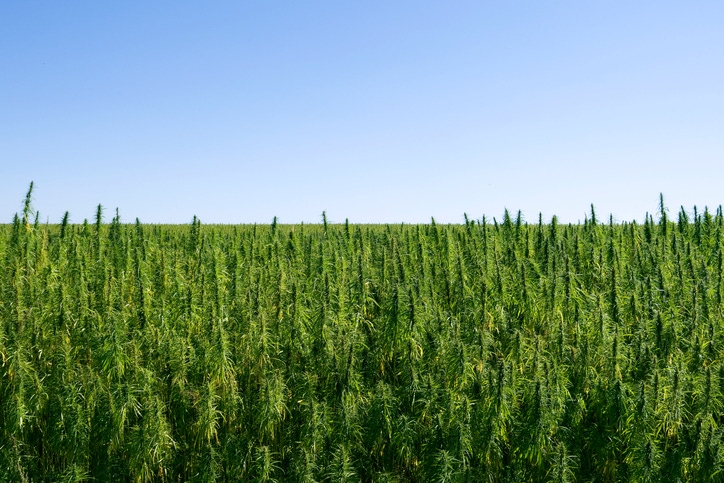RFI respondents tell Congress that FDA’s inaction has gutted CBD markets
A request from lawmakers for information on CBD regulation garnered numerous recommendations about how to move forward to create a legal pathway to market. Respondents said FDA's inaction has hurt investors, finished product manufacturers and farmers.

The Food and Drug Administration’s inaction on hemp regulation has severely impacted farmers, raw material suppliers and finished products brands, dietary supplement industry stakeholders said in response to a congressional request for CBD information.
The official Request for Information (RFI) came from House Energy and Commerce Committee Chair Cathy McMorris Rodgers (R-Wash.) and Ranking Member Frank Pallone, Jr., (D-N.J.), along with Senate Health, Education, Labor and Pensions Committee Chair Bernie Sanders (I-Vt.) and Ranking Member Bill Cassidy, M.D. (R-La.). The deadline for responses was Friday, Aug.18, 2023.
The lawmakers requested answers to 29 separate questions covering all aspects of the regulation of CBD and hemp extract products. The questions also asked whether FDA’s determination that a new regulatory pathway is needed has negatively affected the hemp market.
U.S. Hemp Roundtable: FDA inaction has squelched market
Among the respondents was the U.S. Hemp Roundtable. The organization’s response ran to 48 pages, which included information supplied by a market research firm as well as a copy of testimony offered by Jonathan Miller, the organization’s general counsel, during a hearing on Capitol Hill on July 27.
On the market question, the Roundtable response included data from market research firm Hemp Benchmarks, which presented a grim picture of the market.
According to Hemp Benchmarks, hemp biomass (or raw material) aggregated prices have fallen from more than $3.50 in late 2019 to about 25 cents by April 2023 (the unit amounts were not specified in the charts reproduced in the comments).
Prices for CBD isolate, full spectrum distillate and refined hemp oil showed similar nosedives.
Acreage planted to industrial hemp has followed the same pattern. According to the data, more than 260,000 acres were planted in industrial hemp in the U.S. in 2019. That fell to about 20,000 acres in 2022.
FDA’s determination that it lacks proper authority to regulate hemp products potentially imperils consumers, the Roundtable asserts.
“Lack of national standards has led to the proliferation of unregulated products, some of which raise significant quality, safety and other consumer protection concerns,” the comments stated. “Adding to these issues, surplus hemp CBD biomass is being chemically converted into impairing products, such as delta-8 THC, which are being sold unregulated, sometimes to minors.”
cbdMD: FDA already has enough authority
Sibyl Swift, Ph.D., chief science officer and VP of regulatory affairs for cbdMD, one of the U.S. Hemp Roundtable member companies, emphasized that FDA has ample authority to regulate hemp if it chose to do so.
“We know that our ingredient isn’t special, meaning it’s a botanical ingredient,” Swift, a former FDA official in the Office of Dietary Supplement Programs, said in an interview.
She acknowledged some areas where CBD might be unique, such as when it contains THC. Swift also suggested it was important to ensure CBD products marketed as a dietary supplement do not contain intoxicating compounds that require further research.
She is among those who believe FDA can use its existing authorities to regulate CBD and protect public health.
Swift: Powdered caffeine offers precedent on safety determination
Swift pointed to an ingredient (pure and highly concentrated caffeine) that FDA found poses health risks to consumers. FDA has said pure and highly concentrated caffeine products are frequently marketed in bulk packaging with up to thousands of servings per container and can cause serious health effects, including rapid or dangerously erratic heartbeat, seizures and death.
FDA in 2018 released a guidance for industry on highly concentrated caffeine in dietary supplements. Swift said she worked on that guidance during her tenure at FDA.
Despite FDA’s concerns, it still allowed certain caffeine-containing dietary supplement products since they provide benefits at lower doses, Swift said.
The FDA guidance describes certain types of dietary supplements that FDA does not expect to be adulterated, including “supplements containing powdered or liquid caffeine (either diluted or undiluted) that are sold in premeasured packets or containers, with each premeasured unit containing an amount of caffeine that is not excessive.”
“Much like CBD, [caffeine’s] beneficial,” Swift said. “It doesn’t hurt anyone. At higher doses—above the 500-milligram range [for] caffeine—you’re going to get hurt.”
She acknowledged CBD may cause adverse health effects if someone takes the equivalent of a drug dose, for example, but she noted a product marketed as a dietary supplement—including CBD—is not permitted to cause such harm. And she further pointed to required premarket notifications for new dietary ingredients to demonstrate the safety of CBD in a product.
“We are not asking for special treatment; we are asking to be treated like every other dietary ingredient or cosmetic and apply the regulations within the FD&C [Federal Food, Drug & Cosmetic] Act to our industry,” Swift and cbdMD General Counsel Lance Blundell wrote to the congressional committees. “The American people deserve access to naturally derived products for everyday health and wellness.”
Other countries have already figured this out
Another respondent was the American Herbal Products Association, which was an early adopter of sorts. AHPA has had a cannabis committee for more than a decade.
“FDA could today, under its current authority and in the existing regulatory framework, move CBD-containing dietary supplements out of the shadows and into the bright light of regulatory compliance,” said AHPA President Michael McGuffin in an emailed statement.
AHPA's comments in conjunction with the Consumer Healthcare Products Association (CHPA) and the Untied Natural Products Alliance (AHPA) mentioned the paradox of FDA taking no action to regulate a market that features thousands of products for sale.
“There is no question that consumer demand exists for CBD products, which many seek in order to lead more healthy lifestyles. Yet beyond a few warning letters to companies making unallowed drug claims, FDA has taken little action to assure regulatory compliance or safety of these products,” the comments state.
The comments also directed attention to regulatory schemes for CBD and hemp products that are already in place in other countries.
“Unlike FDA, which has faced criticism for its CBD regulation, global regulators showcase successful models that balance consumer access and safety. The EU, UK, Canadian and Australian approaches offer insights for effective CBD regulation, maintaining safe accessibility while ensuring informed consumer choices,” the comments stated.
CRN: Five years wasted on hand wringing
The Council for Responsible Nutrition’s response maintained FDA has spent the past five years sidestepping the intent of Congress after the passage of the 2018 Farm Bill, which first opened the door to CBD and hemp extract consumer products.
“We believe that if FDA had worked expeditiously on a regulatory pathway to legally market CBD when the 2018 Farm Bill was enacted, the questions raised in this RFI would have already been addressed,” CRN stated in its comments. “Instead, FDA has spent the past five years metaphorically wringing its hands about this authority, ignoring Congress’ directive, watching from the sidelines as a sizable but unpredictable CBD marketplace evolved without meaningful enforcement of legal requirements.”
Steve Mister, CRN’s president and CEO, issued a statement accompanying the posting of the comments.
"Congress is asking the right questions because they created...a framework that CBD, and their reasonable expectations for FDA around this ingredient were not met,” Mister said. “Meanwhile...the agency continues to place an entire industry in innovation-stifling limbo and consumers at continued risk in a needlessly unsupervised environment.”
NPA: Lessons should be learned from red yeast rice case
The Natural Product Association’s comments point to the precedent offered by red yeast rice supplements in solving the drug exclusion clause conundrum.
FDA has approved a Epidiolex, a CBD drug used to treat some seizure disorders in children. The fact that this drug was first studied before CBD supplements appeared lawfully on the market means in FDA’s view it is precluded from use in supplements.
But in the case of red yeast rice, which includes the substance monacolin K, which was studied as the cholesterol-lowering drug known as lovastatin, a compromise was found based on dosage levels, according to NPA.
Instead of trying to find workable solutions like this, NPA asserts FDA is making the process needlessly complicated.
“Instead of using existing regulatory authority, FDA has resisted fulfilling their mandate for years and is now chasing the fantasy of a ‘center’ for hemp and cannabis products that would mimic the Center for Tobacco Products,” said NPA President and CEO Daniel Fabricant, Ph.D. in an emailed statement. “Through DSHEA, Congress has provided FDA with broad authority to review the safety data of new dietary ingredients like CBD to enter commerce. Our proposal demonstrates that putting a clock on FDA to use existing authority is the most efficient and straightforward pathway.”
About the Author(s)
You May Also Like






.png?width=800&auto=webp&quality=80&disable=upscale)